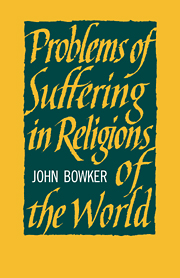Summary
How much misery is presaged to us, when we come so generally weeping into the world, that, perchance in the whole body of history we reade but of one childe, Zoroaster that laughed at his birth: What miserable revolutions and changes, what down-fals, what break-necks, and precipitations may we justly think ourselves ordained to, if we consider, that in our comming into this world out of our mothers womb, we doe not make account that a child comes right, except it come with the head forward, and thereby prefigure that headlong falling into calamities which it must suffer after.
John Donne, whose words those are, may well have been a man of unusually pessimistic temperament: he dwelt frequently on death, wrote his own epitaph and had his portrait painted in his shroud. And yet in that passage he is simply stating one of the most obvious facts of human existence, that suffering is the common lot of all men. It is because suffering, in one form or another, is a common experience that religions give to suffering a place of central importance or consideration—indeed, it is often said that suffering is an important cause of religion, since the promises held out by religion represent a way in which men can feel reassured in the face of catastrophe or death.
- Type
- Chapter
- Information
- Problems of Suffering in Religions of the World , pp. 1 - 4Publisher: Cambridge University PressPrint publication year: 1970



